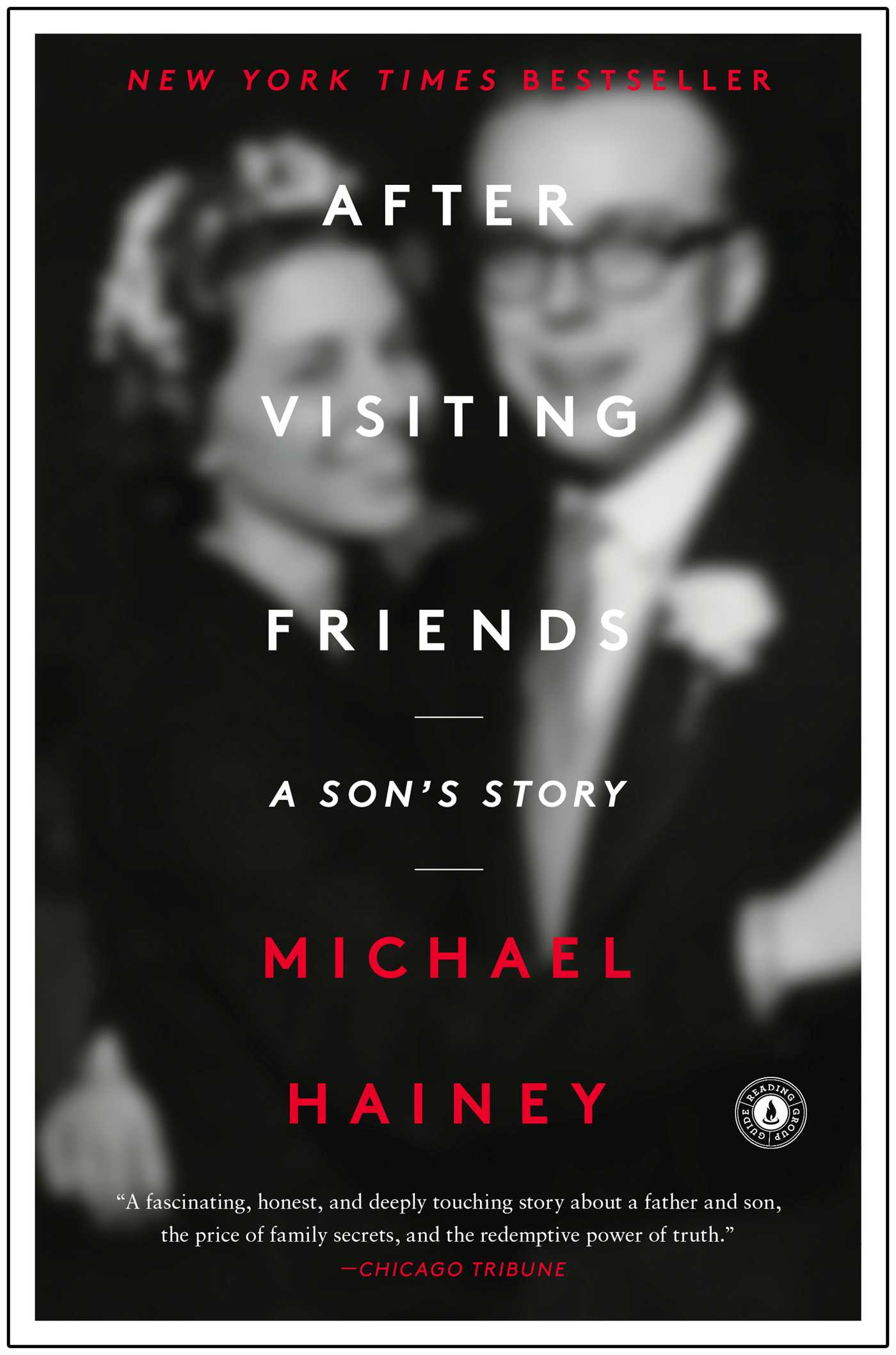There is no solace in pain but the promise of its end. The old cliché that time heals all wounds holds court over our suffering. But if we do not fully comprehend the source of our pain, if questions remain in our hearts and doubts linger in our minds, there can be no reprieve. As Michael Hainey writes in his disquietingly powerful memoir After Visiting Friends, “It’s our human need—to circle back to the stations of our sorrow.”
Hainey’s adult life crystallized around the defining sorrow of his childhood. At age six, he lost his father suddenly to an apparent aneurysm. His father’s death cast a long shadow. “Your absence is greater than your presence,” he writes. “Presence is fleeting. Presence is easy. But absence? That’s eternal. The great constant.”
The circumstances of his father’s death remained murky, and young Michael’s imploring questions of the adults who surrounded him returned only vague pacifications. Until Michael reached the age of thirty-five—his father’s age upon passing—he was certain of nothing, save that he would not outlive his father. Thirty-five came and went, and Hainey went on living and breathing. Yet, many other misgivings continued to cloud his vision. So he decided to reckon with the one great mystery of his past.
Michael’s father was a newspaperman in Chicago (in the days of “newspapermen,” not “journalists”), working the night shift at the copy desk. Seeking out the details of his father’s life leading up to the night of his death, Michael dug up the obituaries from that day and reached out to every living first degree—and sometimes tangential—connection to his father. But, as Hainey writes, his father was “a man of paper. The more I touch it, the more it crumbles.”
The old boys’ club of his father’s newsroom remained stubbornly silent about the events surrounding their friend’s death. Eventually, after countless cold calls to former friends of his father’s, and months of cross-country travel to visit these connections, Hainey uncovered the truth of that night. While initial reports stated that his father died in the street “after visiting friends,” Hainey learned that his father actually died in the bed of his mistress, a young coworker at the newspaper.
What’s beautiful about Hainey’s story is his utter disinterest in tying up the loose ends of his sorrow. He does not offer a single platitude about the healing power of knowledge or the therapeutic effects of revisiting the past. Instead, he seems truly conflicted, torn between his desire to uncover the truth about his father and his deeply entrenched inclination to keep the horrible circumstances of his father’s demise from his mother—to let sleeping dogs lie. Seeking closure, he instead uncovers a complex web of individuals with demons of their own.
What this story lacks in tidy endings, it makes up for in the tender honesty of Hainey’s prose. Towards the end of the book, Michael shares what he’s uncovered with his brother, who counters: “The past gives you no justice . . . And we’re all free to decide when we’ve had enough.” Michael’s investigation, which his brother perhaps views as an invasive endeavor, has yielded a gorgeous, delicate memoir—it stands as its own defense against those who propose that the secrets of the past ought to stay buried.
Hilary Krutt works on the Subsidiary Rights team at Atria Books. You can follow her on Twitter @Hkrutt.






